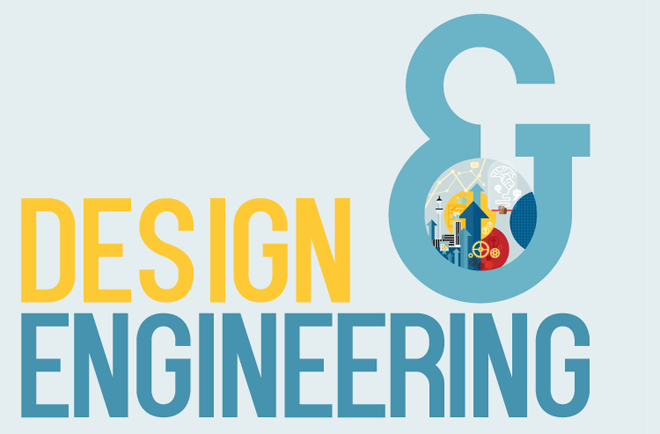
Which sector employs 5.4 million people and represents almost 20% of the UK workforce? Engineers shape the world we live in!
BY SUMMER SHUTTLEWOOD
If you’d like the simplest possible explanation of what it is that engineers do, the easiest way to do so is: engineers use the practical and creative application of maths and science to make things work.
Creativity and artistic ability probably aren’t qualities that you would normally associate with the engineering industry. However, the creative fields of engineering such as computer game design, software/hardware design and product design play a surprisingly huge part in our everyday lives.
There will be an expected 2.74 million job openings in engineering companies between 2010 and 2020, requiring approximately 87,000 people at degree level or the equivalent. At present, however, the number of graduates entering this field every year is far lower than the demand for them.
So, do you fancy designing the next big gig venue, like Wembley or the O2? Would you like to be the brains behind creating a massively successful, world-famous video game? Studying maths, chemistry and physics at GCSE are great backgrounds for a career in this field but other, highly relevant subjects including design & technology and computing are also extremely helpful. BTEC diplomas and Level 2 qualifications in relevant subjects such as IT or product design,are also good subjects to consider studying.
At A-level, maths, physics, chemistry, engineering and computing are the best subjects to study. Alternatively, a BTEC level 3 in a relevant subject such as engineering, IT or applied science would put you in a great position to go on to study engineering at degree level.
At university, there are many options available. General engineering degrees are on offer at many universities, as well as degrees in more specialised areas like chemical or electrical engineering.
For some careers, such as a sound engineer, getting a degree in Music & Sound Recording (offered at the University of Surrey) would be one route into the job. Typically, you will need to have studied maths and physics or a related course to Level 3, in order to apply to engineering courses at university.
Graduate programmes, such as The Nestlé graduate scheme, are available. The Nestlé scheme lasts two years with graduates joining every six months and spending twelve months working with the confectionery arm of the company, designing the machines which make some of your favourite chocolate bars.
Want to go straight to hands on experience in your chosen field? Apprenticeships can open doors to a wide variety of engineering jobs. You will generally need a minimum of five GCSEs (or equivalent), including English, mathematics and science or technology subjects, ideally at grades A* to C.
Work experience in creative engineering would be extremely useful to separate yourself from the crowd when applying to universities, jobs or apprenticeships.
Design in Engineering
Design is all about creative thinking and problem solving and the UK is renowned for producing some of the most creative minds in the world. Whether they’re designing a sleek, beautiful, aerodynamically perfect car, creating compelling, best-selling computer games or involved in the design and construction of an award-winning building in the City, engineers are at the core of the process. Design in engineering involves constant innovation, challenging outdated ways of thinking and doing things – then coming up with a better, more efficient, streamlined solution.
Engineers shape the world we live in, by designing, testing and improving almost every product or process you can think of. It really is the industry where you can be involved with planning what the future might look like… A trip to Mars? How can we make that happen?! What about self-cleaning clothes? Engineers are essential team members in more industries than you might think, including space, transport, medicine, technology, food, fashion, construction.
We need more engineers in the UK. The future looks bright for careers in engineering and many jobs in this sector are very well paid. People who have studied engineering at university will earn approximately 35% more in their lifetime than the average person with a university degree and getting an apprenticeship in engineering means you will earn considerably more than the average technician.
Want to be famous? Think about Tim Berners-Lee, the inventor of the World Wide Web! What about Isambard Kingdom Brunel, whose extraordinary vision and designs for the railway revolutionised public transport and modern engineering. Percy Shaw had a eureka moment when he made driving at night safer by inventing those light-reflecting studs in the middle of all our roads. After seeing his car headlights reflected in a cat’s eyes one night, he realised that a gadget which had the same effect would make night driving much, much safer. Sir Giles Gilbert Scott is still recognised for designing the iconic red telephone box!
Engineering is not all about getting your hands dirty. The role of engineers is to continually search for newer and better ways to make people’s everyday lives easier and more enjoyable. Engineers’ innovative experiments in design and technology will take us way into the future - and beyond!
If you want to find out more about getting the right qualifications for a career in engineering, go to The Engineering Development Trust’s website, www.etrust.org.uk, and click on the Students tab.

 Moving On magazine careers and qualifications
Moving On magazine careers and qualifications






 A New Sparta Group Company
A New Sparta Group Company